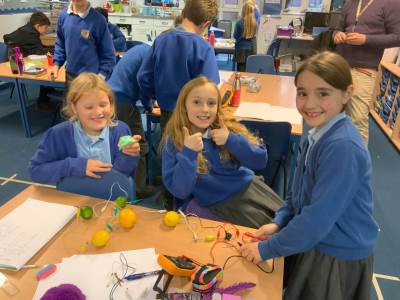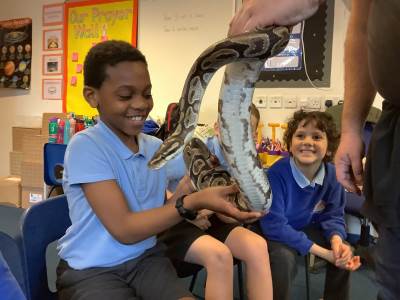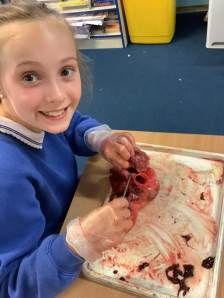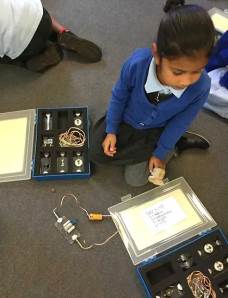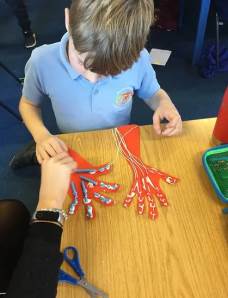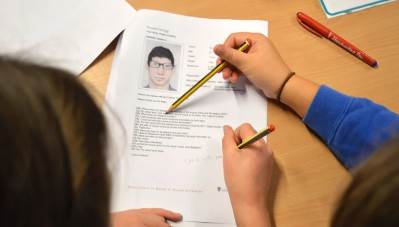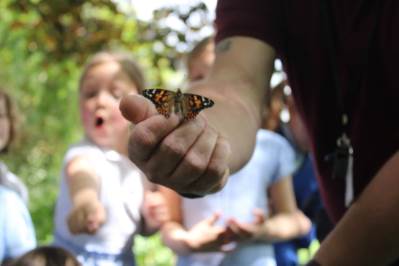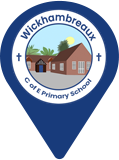Science
Science at Wickhambreaux
Pupils can think as biologists, as physicists and as chemists.
Ofsted 2025
What Science looks like at Wickhambreaux
Subject Leader Profile
Mrs Barnes has always been a highly driven and passionate scientist. Following completion of her A-levels, she was accepted into the Royal Vetenary School in London, where she studied Vetenary Science for 1 year before transferring to the University of Kent to complete her Bachelor of Science degree in Biochemistry.
In 2014, Mrs Barnes was awarded Qualified Teacher Status upon the successful completion of her employment based initial teacher training program (Schools Direct), and began her role of science co-ordinator at Wickhambreaux CEP School.
Since commencing her role as Science Subject Leader, she has been invited to deliver workshops, speak at national conferences and lead CPD sessions for other teachers focused on improving science teaching in primary schools. She has been nominated for Science Teacher of the Year, and has been instrumental in transforming science teaching in a variety of educational settings.
Mrs Barnes has worked closely with a wide range of organisations offering initiatives and driving research into improving teaching and learning in science, and is responsible for Wickhambreaux being awarded “beacon school” status for science by Empiribox (national providers of a bespoke science curriculum), organising groups of children to participate in the “Saturday Smarties” science sessions run in partnership with the Kings School Canterbury, and arranging for pupils to work with scientists and engineers on engaging projects with real-world applications. Mrs Barnes teaches with inspiring zeal and enthusiasm for her subject, and truly ignites a genuine enjoyment and passion within her pupils.
Vision
Wickhambreaux CEP’s vision for Science teaching and learning is integral to our approach to learning across the curriculum and stated aims for learning. The Science policy will set out how we implement and provide our children with a Science curriculum fit for the 21st century, through the enhancement of skills and experiences that will lead to building learning in every child’s future. Our curriculum map for science sets out how it will enable our pupils, whenever possible from first‐ hand experience, explore and discover the world around them; resulting in a deep knowledge and understanding on which to build future learning. Our innovative approach involves exciting, practical hands‐ on experimentation and experience that actively encourages curiosity, questioning and a problem‐ solving approach all necessary for scientific enquiry. Our aim in providing these stimulating and challenging tasks, is to secure and extend our pupils’ scientific knowledge and vocabulary. We believe that the opportunities and experiences, set out in this policy, will ensure, and enable our children to become confident learners, who will then explore their environment by posing insightful and inquisitive questions, about what they observe in the world around them. Science places no limits on the acquisition of knowledge, or the possibility for discovery, we therefore do not believe in putting a ceiling on our children’s learning or limiting their creativity by outlining a too prescriptive programme of study for Wickhambreaux Children. Using the National Curriculum as its starting point, an outline (see curriculum map) of what will be taught, relevant to age and stage, will be set out to demonstrate how our pupils will be encouraged to question and use their imagination to extend their knowledge, in preparation for their next stage of learning and for their future lives.





